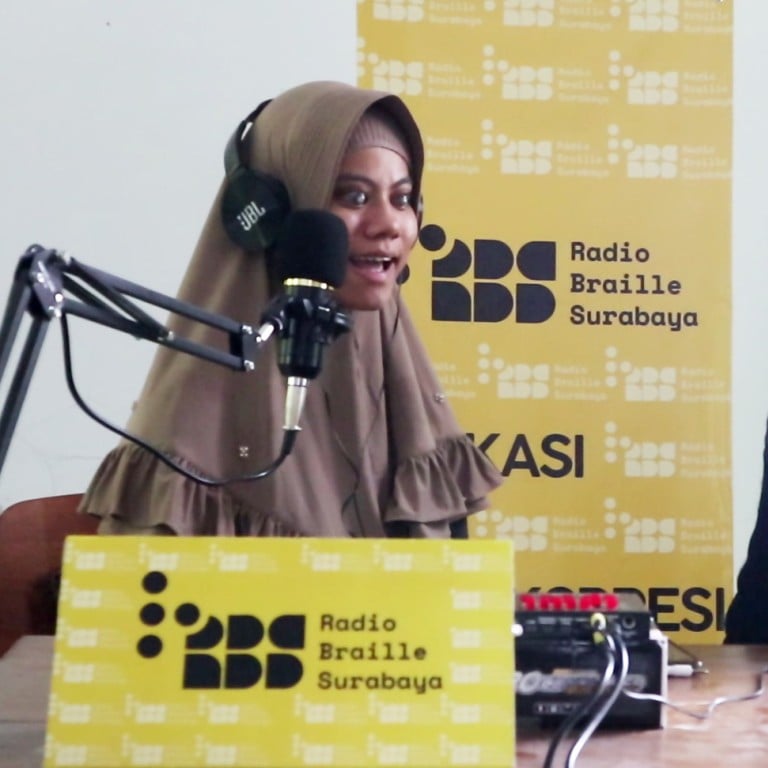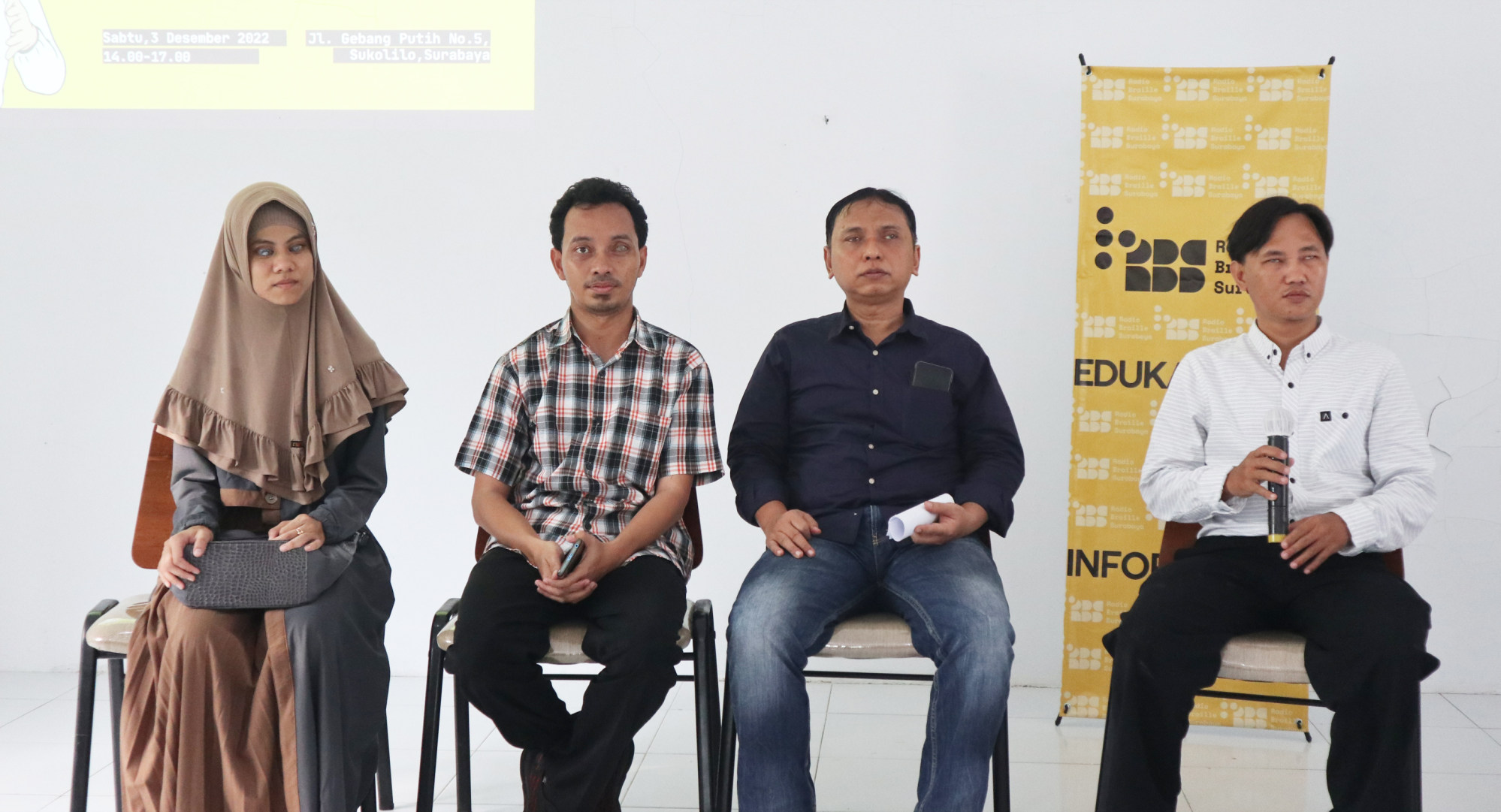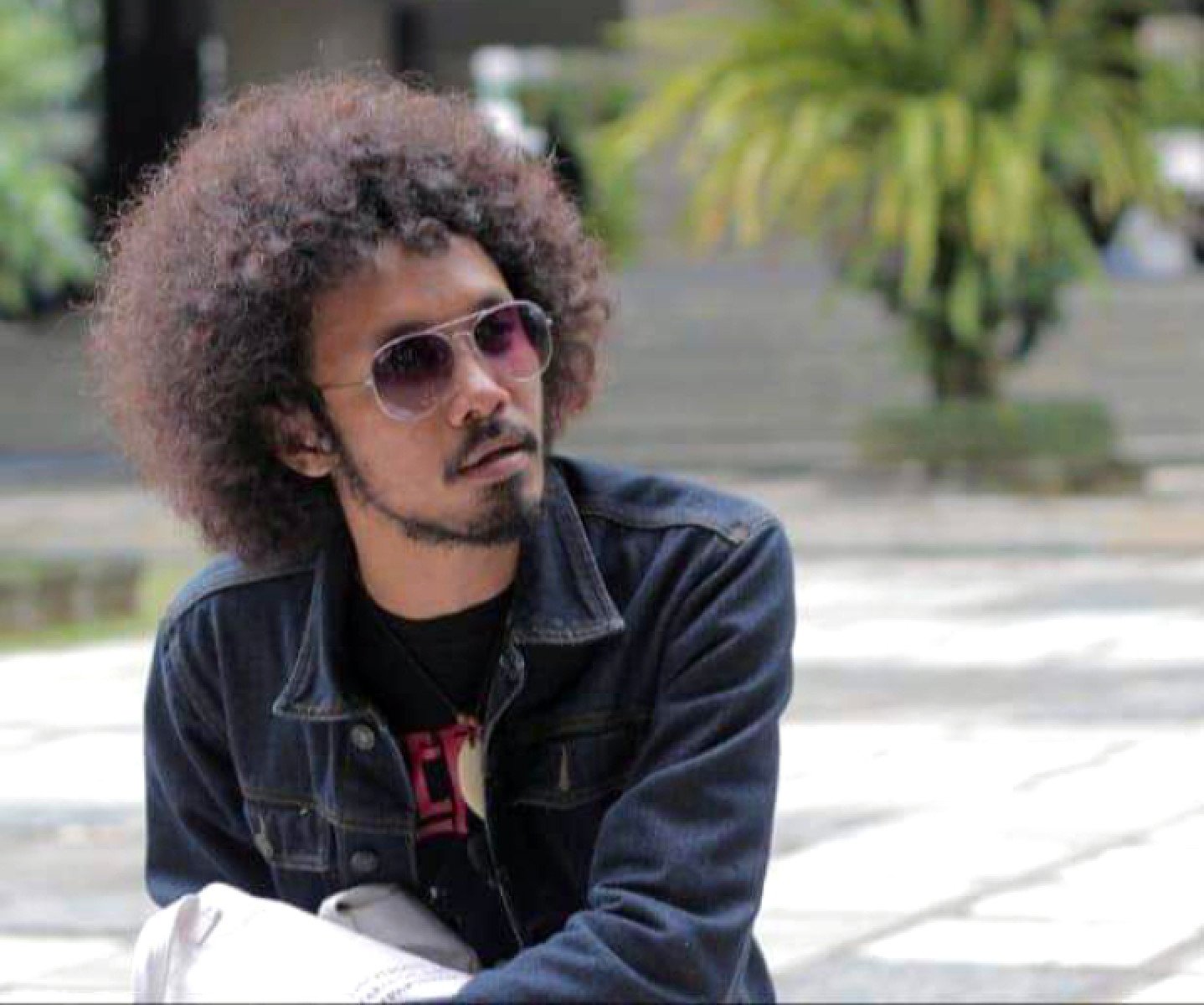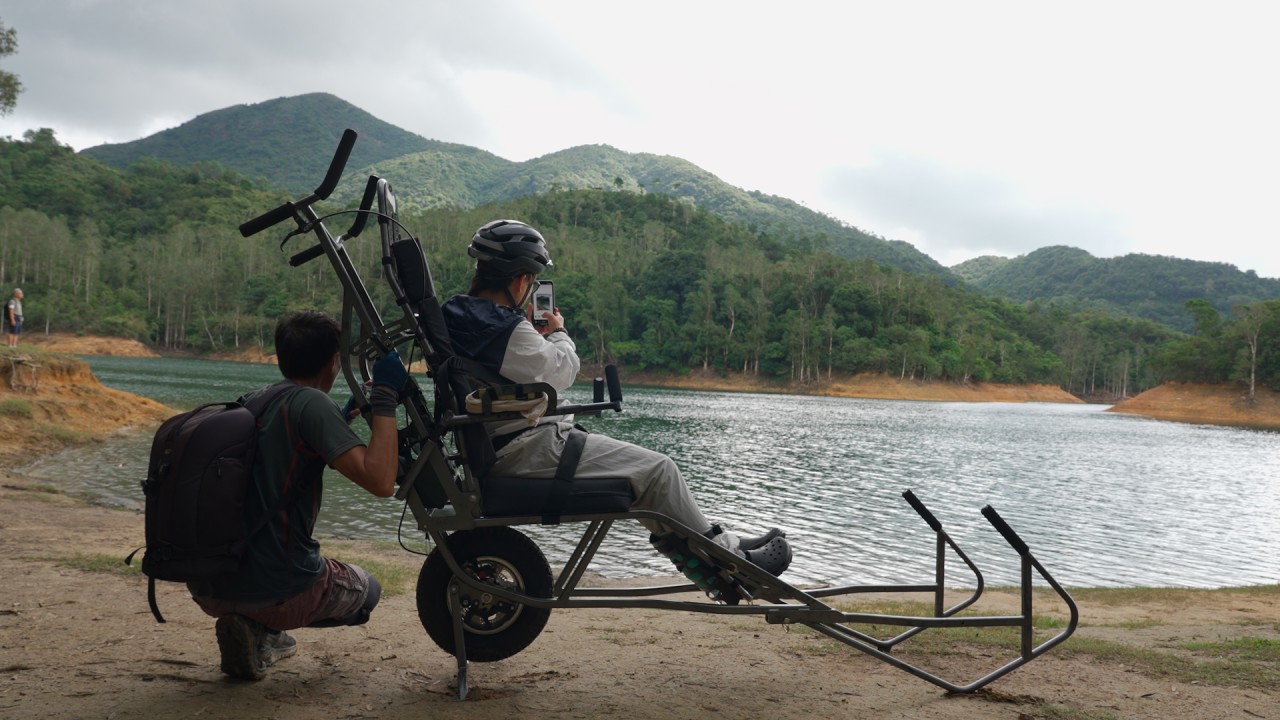
Indonesia’s all-blind radio crew seeks to shed light on perspectives of disabled community
- Surabaya’s first radio station helmed by blind people shares YouTube video highlighting city’s poor infrastructure for visually impaired
- The station hopes to expand to include people with other physical impairments, and to advocate for rights
A video clip on YouTube shows a blind man in a red batik shirt making his way through a pavement with his white cane.
Some people are waiting at the bus stop. Seeing the man feeling his way through the scattered seats, they stare but do nothing to help him. He is soon joined by three other blind people; two men and a woman.

This quartet – Tutus Setiawan, 42, Atung Yunarto, 50, Hannan Abdullah, 25 and Sugi Hermanto, 39 – are the pioneers behind the city’s first radio station helmed by an all-blind crew: Radio Braille Surabaya (RBS).
The YouTube video captured a field trip by the RBS crew to test the local public transport system’s accessibility for those with visual impairments.
He pointed out that the city’s pavements were littered with obstacles, which posed a challenge to blind people navigating the streets. “There is no information on bus schedules in Braille at any of the bus stops, either. The interior of the buses we boarded was ill-designed for people like us, not to mention the overall unhelpfulness of the bus crew.”
Robot avatars piloted by disabled people are changing Japan’s work routine
RBS launched on December 3, to coincide with the 2022 International Day of Persons With Disabilities. The radio’s four-people team underwent three months of training by volunteers from the Alliance of Independent Journalists (AJI), whose 1,800 members across Indonesia encompass print, TV, online and radio journalists.
Oki Rahadianto Sutopo, a sociologist at Yogyakarta’s University of Gadjah Mada, said the video exposed the lack of inclusive culture in Indonesian society. “This extends beyond the disabled community but also affects other minority groups,” he said.
He suggested that fostering the culture of solidarity with marginalised minorities should start at home and be reinforced at school and the workplace through inclusive social policies.

Yunarto, RBS content manager and teacher of mathematics and physics at YPAB, hopes that the radio station’s first field-report provided glimpses into life for blind people in the city.
“RBS aims to give people with disabilities a voice. We also want to educate the general public about the rights of disabled people,” he said.
He claimed from his life experience government agencies and society tended to be indifferent to the needs of disabled communities, and when on the rare moments they took notice, it was usually out of pity.
“Take the lack of accurate data on us, for example. Different government agencies have different statistics on us. It’s confusing for sure.”
A 2020 figure from the Central Bureau of Statistics put the number of people with disabilities at 22.5 million or five per cent of the total population. For the same year, the Ministry of Social Affairs estimated there were some 30.38 million disabled people in the country.
Abdullah, the youngest of the quartet, is a distribution manager for RBS and an English teacher at YPAB. She said the journalistic training has been an exciting learning curve for her.
“We feel that we now know the basics of what makes a good radio show and we can’t wait to put what we have learned into practice,” she said.
Hermanto, a primary schoolteacher, is a YouTuber under the handle @mlakumlaku4895. He explained the team had settled on YouTube because the platform is the most frequented by Indonesians who seek audiovisual information online.
“People may think of YouTube as a very visual platform but from the perspective of blind people, it is more an auditory experience than a visual one,” he said.
AJI Surabaya chairman Eben Haezer is pleased his organisation has been able to facilitate the birth of RBS.
“A media outlet with a unique perspective of disabled people will enrich (our city).”
Though the radio station began with an all-blind crew, Haezer said that both AJI and RBS shared a vision of expanding outreach to people with other disabilities.
Setiawan hopes RBS will attract other disabled communities to pool their resources and aspirations to advocate for their rights as citizens.
“It’s time people with disabilities acted as discerning voters who will only support candidates with policy platforms friendly towards us.”
Setiawan stressed that people with disabilities do not wish to be helpless or dependent on others.
“But we may need a little help so that we can empower ourselves.”


